
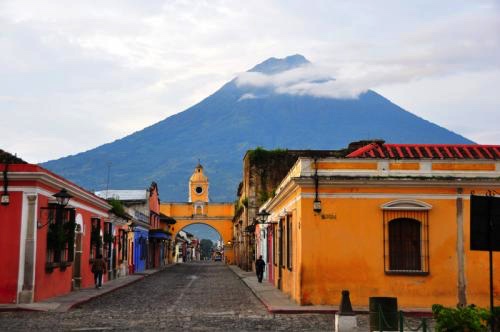
UNWTO features as tourism enters Ibero-American cooperation agenda
The 26th Ibero-American Summit of Heads of State and Government (La Antigua, Guatemala, 15-16 November) concluded with a high-level political declaration on sustainable development in which tourism plays a key supporting role. The commitment, which includes the World Tourism Organization (UNWTO), marks the first time the tourism sector has been featured in a top-level multilateral cooperation agenda.
Ibero-American presidents and heads of state have mandated the Ibero-American General Secretariat (SEGIB) with introducing tourism in the development cooperation portfolio of its 22 member states, all of which are also UNWTO Member States.
In the ‘La Antigua Action Program for Ibero-American Cooperation’, the mandate from heads of state and government specifically calls on SEGIB to closely coordinate its future work around tourism with UNWTO. Both organizations are asked to collaborate on initiatives to promote sustainable tourism that can impact on development, partnering with key actors of the United Nations’ 2030 Agenda for Sustainable Development.
This accord is unprecedented for its inclusion of tourism in an international multilateral action plan for cooperation. The commitment includes tourism and the economy together as one issue area, urging states to prioritize public policies for developing and managing sustainable and responsible tourism to boost competitiveness.
A first contribution of UNWTO has been the publication “The Contribution of Tourism to the Sustainable Development Goals in Ibero-America”, produced on the occasion of the First Ibero-American Conference of Ministers of Economy and Tourism held in September, and leading up to Summit of Presidents and Heads of State.
This advance has the potential to give tourism a deservedly strong voice at the highest political and policy levels, adding value to economies and complementing UNWTO’s work with its members and partners across and beyond Ibero-American states.

He is WTTC’s “Travel & Tourism job creation Champion”
Speaking today at the inaugural WTTC Africa Leaders Forum in Stellenbosch, South Africa, which was hosted by Tourism South Africa, Guevara said: “In his State of the Nation address in February this year, President Ramaphosa not only mentioned the “incredible opportunities” of Travel & Tourism, he also set a powerful target to double the number of people directly employed in our sector from 700,000 to 1.4 million.
President Ramaphosa of South Africa is a “Travel & Tourism job creation champion” for his ambition to double the number of people employed in the sector, according to Gloria Guevara, President & CEO of the World Travel & Tourism Council (WTTC).
“Travel & Tourism is without doubt South Africa’s greatest engine for the creation of jobs and the alleviation of poverty. It contributes to social equality, encourages the integration of women in the workplace, and enables economic self-reliance. It provides employment in parts of the country where other jobs may not exist and generates a sense of self-worth. We praise the Government for recognising those “incredible opportunities” of our sector and the steps it has already taken to realise the potential.
“We see those opportunities falling in three broad areas: We congratulate the Government of President Ramaphosa for its efforts to reform the visa process so that more tourists from more countries can visit the country and recommend that this is rolled-out as widely as possible. Secondly, we support the long-held ambition to fully liberalise the continent’s air services. Finally, we see the benefits of South Africa’s continued adoption of biometrics as a way to make travel safer and more efficient.
“These and other initiatives will help to achieve President Ramaphosa’s ambitions and we look forward to continuing our strong partnership with his Minister of Tourism, His Excellency Derek Hanekom,” concluded Guevara.
According to annually published WTTC data, Travel & Tourism currently contributes a total of 8.9% of South Africa’s GDP and creates 726,000 jobs directly, rising to 1.5 million when all the impacts of the sector are taken into account.
WTTC represents the global Travel & Tourism private sector. Its Members consist of more than 170 Chairs, Presidents and CEOs from companies in every part of the Travel & Tourism sector.
Given the potential of Travel & Tourism in Africa, WTTC gathered the CEOs and regional leaders of the top Travel & Tourism companies from across Africa, along with Tourism Ministers and regional experts at its inaugural Africa Leaders Forum in Stellenbosch to discuss the key issues facing the region’s Travel & Tourism sector. WTTC would like to thank the South Africa Ministry of Tourism for its hospitality in helping to bring the sector together to facilitate the dialogue.
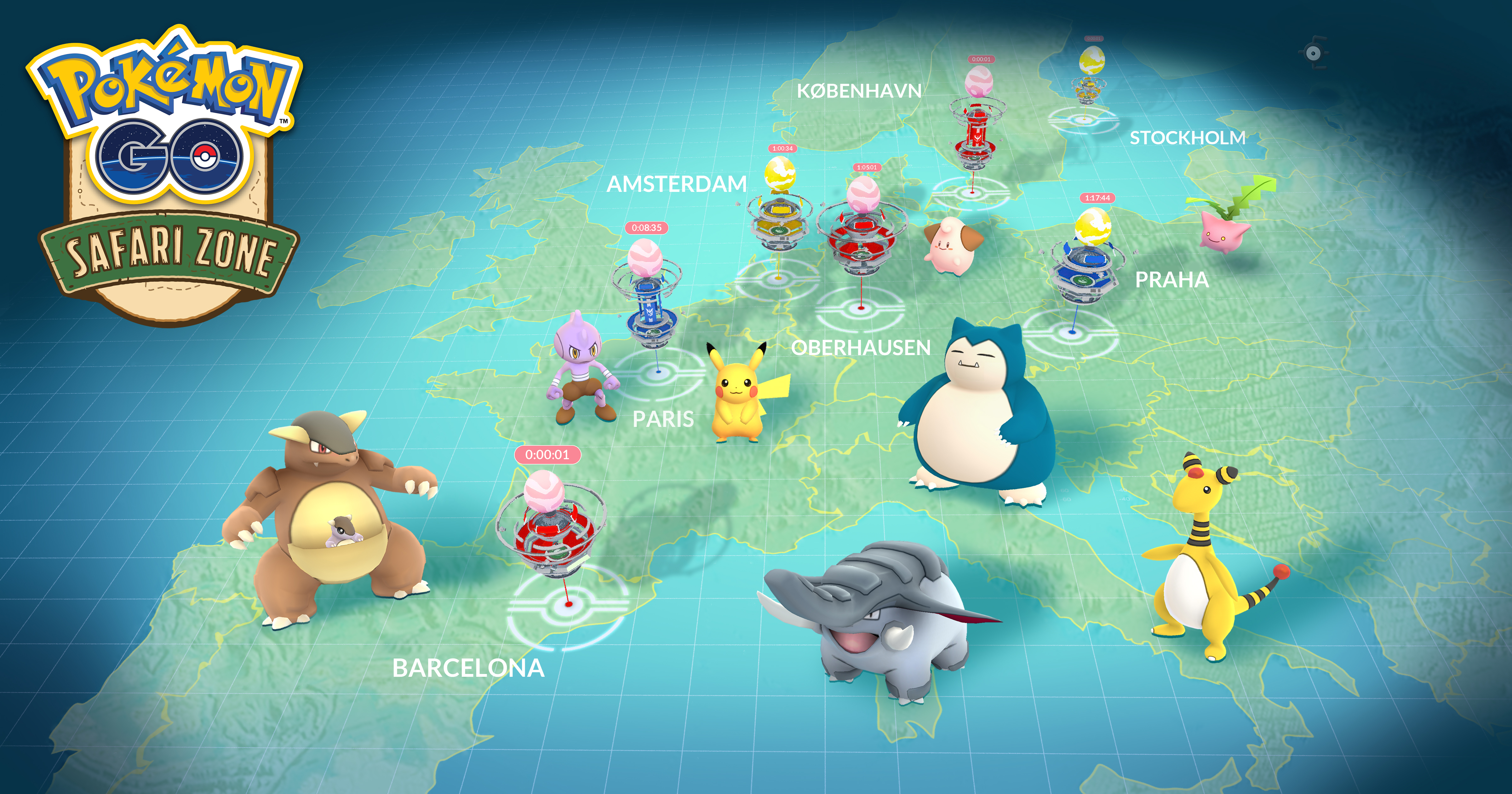
What does World Tourism have in common with Pokemon Go?
The World Tourism Organization (UNWTO) has partnered with one of its newest Affiliate Members, real-world games developer Niantic, to enhance global tourism through the use of mobile augmented reality game experiences.
UNWTO will collaborate with Niantic, creators of Pokémon GO and Ingress Prime, to curate unique campaigns around the world that will build awareness for the Organization’s Travel.Enjoy.Respect campaign, designed to enhance tourism’s contribution to the United Nations’ 2030 Agenda for Sustainable Development. Each activity will also be designed to inspire and support exploration, and promote safe and responsible gaming practices for players of all ages.
Niantic and UNWTO will work together to combine tourism and Augmented Reality technology for players to engage with real-world locations using Niantic’s mobile games in a variety of ways. Niantic’s games and global initiatives have brought millions of players from around the world together at real-world events that promote civic engagement and cultural diversity while highlighting local heritage.
“With our ongoing commitment to promote sustainable and responsible tourism, and Niantic having recently become a UNWTO Affiliate Member, this partnership is a natural fit,” said Ion Vilcu, Director of UNWTO’s Affiliate Members Department. “Niantic are pioneers in creating real-world mobile game experiences that not only motivate their players to discover new places, but also to appreciate the culture and beauty of the world around them,” he added.
“Our goal at Niantic is to create interactive games that encourage exercise, social interaction and exploration, giving players the opportunity to play together in the real world and discover the incredible history hidden in their own neighbourhoods,” said Anne Beuttenmüller, Head of Marketing EMEA at Niantic. “We’re looking forward to creating brand new adventures in collaboration with UNWTO to increase awareness around their mission of responsible tourism,” she added.
Niantic was accepted as an Affiliate Member on 31 October 2018 at the 109th session of UNWTO’s Executive Council, held in Manama, Bahrain. This new partnership helps to bolster UNWTO’s ongoing efforts to bring together the actors of the ‘ecosystem’ of tourism technology under its priority of innovation and the digital transformation in tourism.
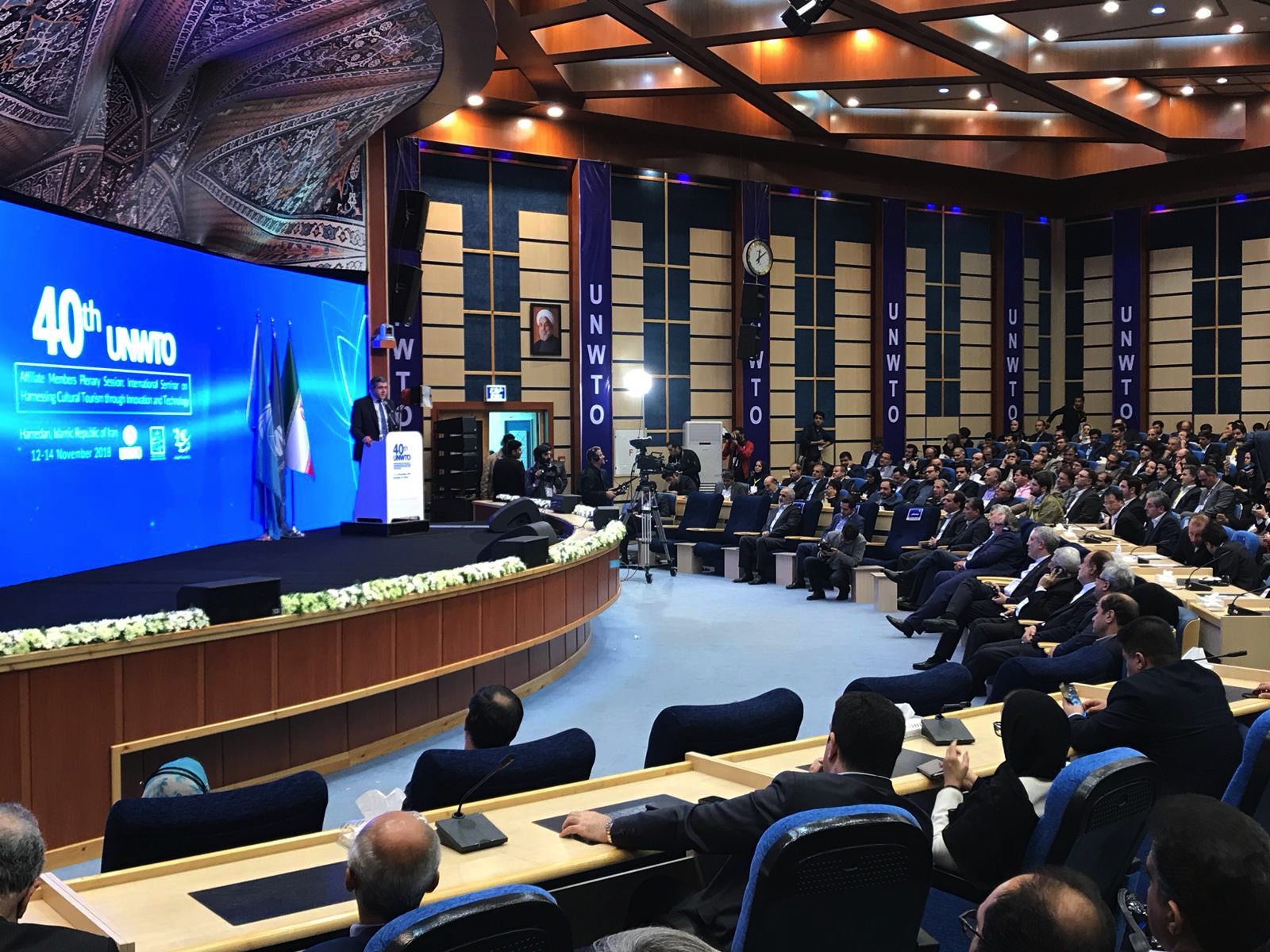
UNWTO: Community involvement needed in cultural tourism’s digital transformation
The World Tourism Organization (UNWTO)’s International Seminar on Harnessing Cultural Tourism through Innovation and Technology and 40th Affiliate Members Plenary Session concluded with a renewed call for community participation in development of cultural tourism using cutting-edge technologies (12-14 November 2018, Hamedan, Islamic Republic of Iran).
Cultural and heritage attractions are key to tourism development in many countries around the world, and innovation and technology can make these attractions more accessible while preserving their essence, the seminar concluded. It also stressed that innovation and technology should empower, rather than disenfranchise, host populations and communities and can assist them in retaining their authenticity, while cultural heritage development and preservation should be a part of local and national plans for socioeconomic development through tourism and technology.
“Technology and innovation, including ICT, can improve the quality of the tourist experience. It can improve governance, profits and the wellbeing of residents. And it can preserve intangible and tangible heritage resources for the sustainable development of cultural tourism,” said UNWTO Secretary-General Zurab Pololikashvili opening the event.
“The world’s diverse range of culture and heritage form the best means and ways to connect peoples of the world – but only if the rights and privileges of both host and guest populations are respected and responded to. And innovation and technology can help”, added Iranian Vice-President Ali Asghar Mounesan, who also heads the Iran Cultural Heritage, Handcraft and Tourism Organization (ICHTO).
The seminar agreed that informed governance and policies surrounding uptake of new technologies and innovative practices can guide tourism development and open doors for the sector, with conservation and revitalization of cultural heritage one of its main benefits. It also highlighted that for tourism authorities, participation of, and collaboration with, the host community should be a driver for technology-driven change. It was urged that tourism development not only maximize benefits and minimize costs for greater competitiveness, but also respond to the expectations and needs of hosts and guests alike.
The seminar was organized by UNWTO, ICHTO and Alisadr Tourism Company. Alongside it, Hamedan played host to the UNWTO Affiliate Members’ 40th plenary, in which active discussions were held as UNWTO’s Affiliate Members voiced their opinions and suggestions on the Affiliate Members Department’s Programme of Work for 2019.
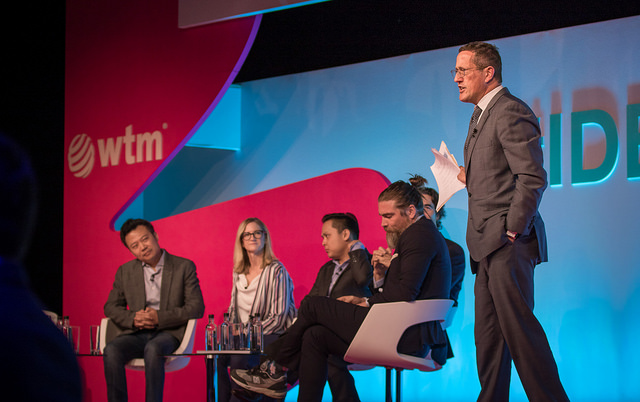
Governments and Investors Share Knowledge on Tourism Technology at UNWTO/WTM Ministers’ Summit
The UNWTO/WTM Ministers’ Summit, held yesterday by World Travel Market and the World Tourism Organization (UNWTO), was well received by participants from government and the private sector for its more dynamic new format leading to more concrete takeaways around this year’s theme: Investment in Tourism Technology.
This year, the UNWTO/WTM Ministers’ Summit held at World Travel Market, one of the world’s biggest tourism trade show (6 November 2018), focused on investment in tourism technology with a novel format. For the first time the summit featured a panel of private sector leaders alongside a panel of ministers, sparking an open and useful exchange of ideas and opinions on how to channel private capital into innovative tourism technologies.
This meant that tourism ministers and high-level representatives from countries including Bahrain, Bulgaria, Egypt, Italy, Malaysia, Mexico, Portugal, Romania, South Africa, Uganda, Uruguay and the UK were able to directly reflect on and respond to the opinions voiced by the leading tourism and technology investment funds involved in the panel, such as Alibaba Capital Partners, Atomico and Vynn Capital.
“Without the support of the key tourism stakeholders, notably governments, corporations and investors, development and implementation of innovative products is not possible. Today’s discussions shed light on the influential role of both sectors as well as the need for stronger public-private partnerships”, said UNWTO Deputy Secretary-General Jaime Cabal opening the event.
A common sentiment amongst the panel of private sector entrepreneurs was that disruption leads change in the tourism sector, but regulation can be preventative to obtaining the attractive investment conditions needed to support disruptive new business ventures. It was suggested that regulation should be fixed in order to give clear guidelines to investors who wish to put private capital into new technology.
Several technology investors highlighted the need to narrow the opportunity cost and clear up the governance barriers for innovation in tourism. “It needs to be easy for start-ups to grow and expand – if rules change too quickly, investors will hesitate to invest,” Katherine Grass of Thayer Ventures told ministers.
Lio Chen, Managing Director at the Travel & Hospitality Center of Innovation at venture capital firm Plug and Play, called for larger technology companies to engage with start-ups to boost ideas, human resources and investment. “I ask ministers to incentivize the top five corporations in their country to work with start-ups and foster innovation,” he said.
On the subject of regulation, Michael Ellis, UK Parliamentary Under-Secretary of State for Arts, Heritage and Tourism, said: “It’s a question of balance, and it’s a challenge to get that right, especially in technology.” He also urged ministers to boost sustainability and help tackle the world’s climate-related problems, such as rising carbon emissions.
Education was also highlighted as an element making investments more attractive. “Education allows technology to root into societies and contribute to making tourism more inclusive for communities,” said Benjamin Liberoff, Vice-Minister of Tourism of Uruguay.
“We have brought the public and private sector together in a unique format, and hope it will deliver real change in the sector. As tourism grows, then technology will play a key role,” said Simon Press, Senior Exhibitions Director of WTM London.
Moderated by Richard Quest of CNN International, the summit contributed to UNWTO’s ongoing priority to place tourism at the centre of the global innovation agenda.
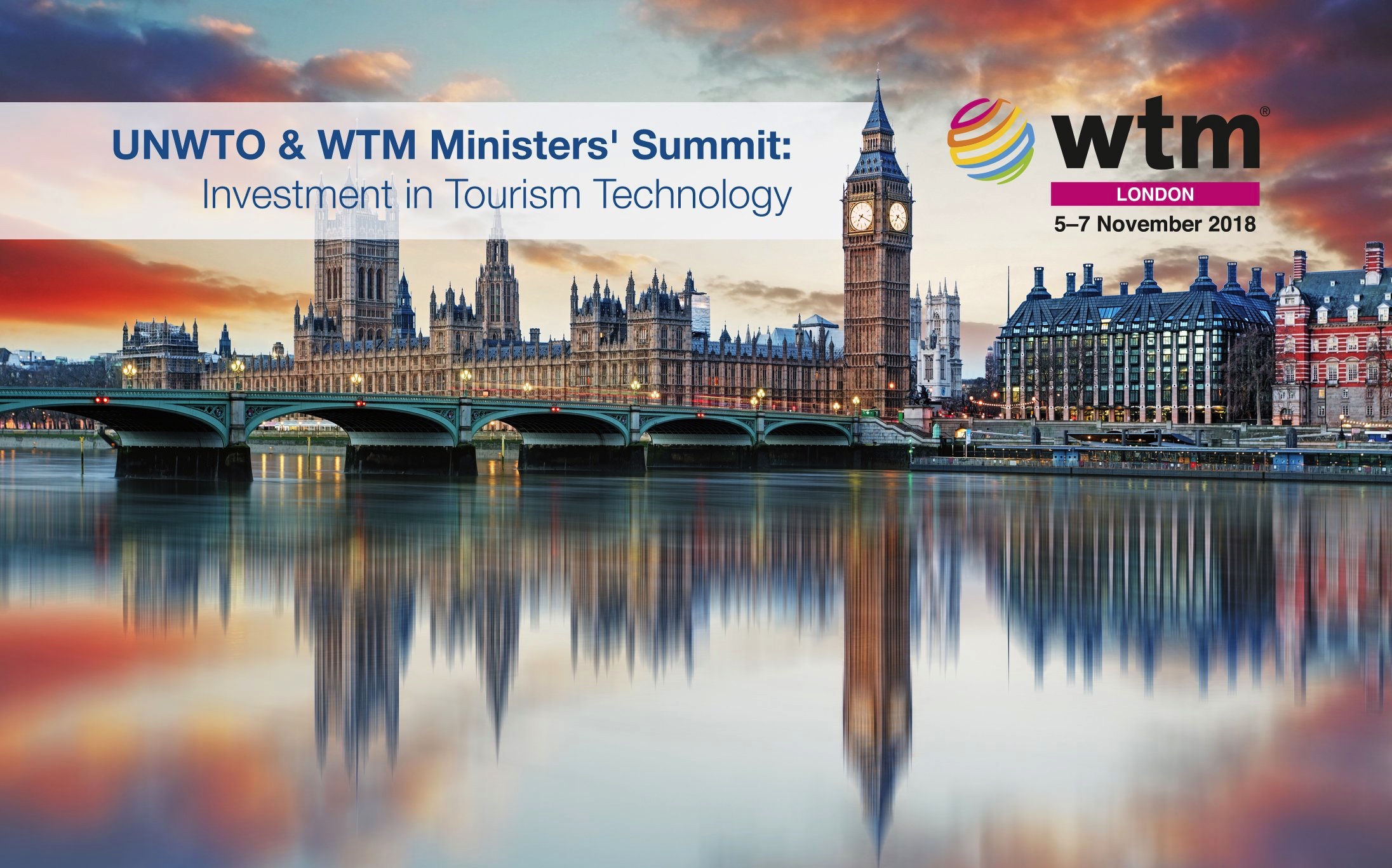
UNWTO calls for tech and investment in tourism at World Travel Market 2018
The 2018 edition of World Travel Market (WTM) will see the World Tourism Organization (UNWTO) continue its operational focus on investing in innovation and digital advances for a tourism sector that can deliver opportunities for all. UNWTO will co-host a Ministerial Summit and launch a white paper on the relationship between music and tourism at the UK tourism trade fair on 6-7 November 2018.
Following the official celebration of World Tourism Day 2018 (27 September) in Budapest, Hungary under the theme of ‘Tourism and the Digital Transformation’, and the ‘Tourism Tech Adventure: Big Data Solutions’ forum held in Manama, Bahrain on 1 November, UNWTO will host this year’s UNWTO/WTM Minister’s Summit on 6 November on the topic ‘Investment in Tourism Technology’.
The Summit will continue the conversation on innovation and digital transformation, a UNWTO priority designed to give tourism its deserved prominence on the digital agenda. It will debut a disruptive new format, involving private sector leaders for the first time. A panel of investors will discuss investment in tourism technology, followed by the ministerial segment that this year will link both public and private sectors to set the agenda for ensuring the sector’s digital transformation enhances its inclusion, sustainability and competitiveness.
Both panels will be moderated by CNN’s foremost international business correspondent Richard Quest, anchor of Quest Means Business, with focus on creating innovative ideas and partnerships that can boost investment. Developing an innovation ecosystem, data-driven decision making, digital destination branding, and the role of government and policy in smart tourism management are among the topics to be addressed.
UNWTO, Procolombia and Sound Diplomacy launch first report dedicated to music and tourism
UNWTO’s presence at WTM will also encompass the launch of a new white paper, produced in partnership with Procolombia and Sound Diplomacy, examining the role of music in tourism development, marketing and experiences, and the economic benefits of music and tourism sector partnerships. The launch of ‘Music is the New Gastronomy’ on 6 November will accompany a panel exploring the value of music tourism in depth.
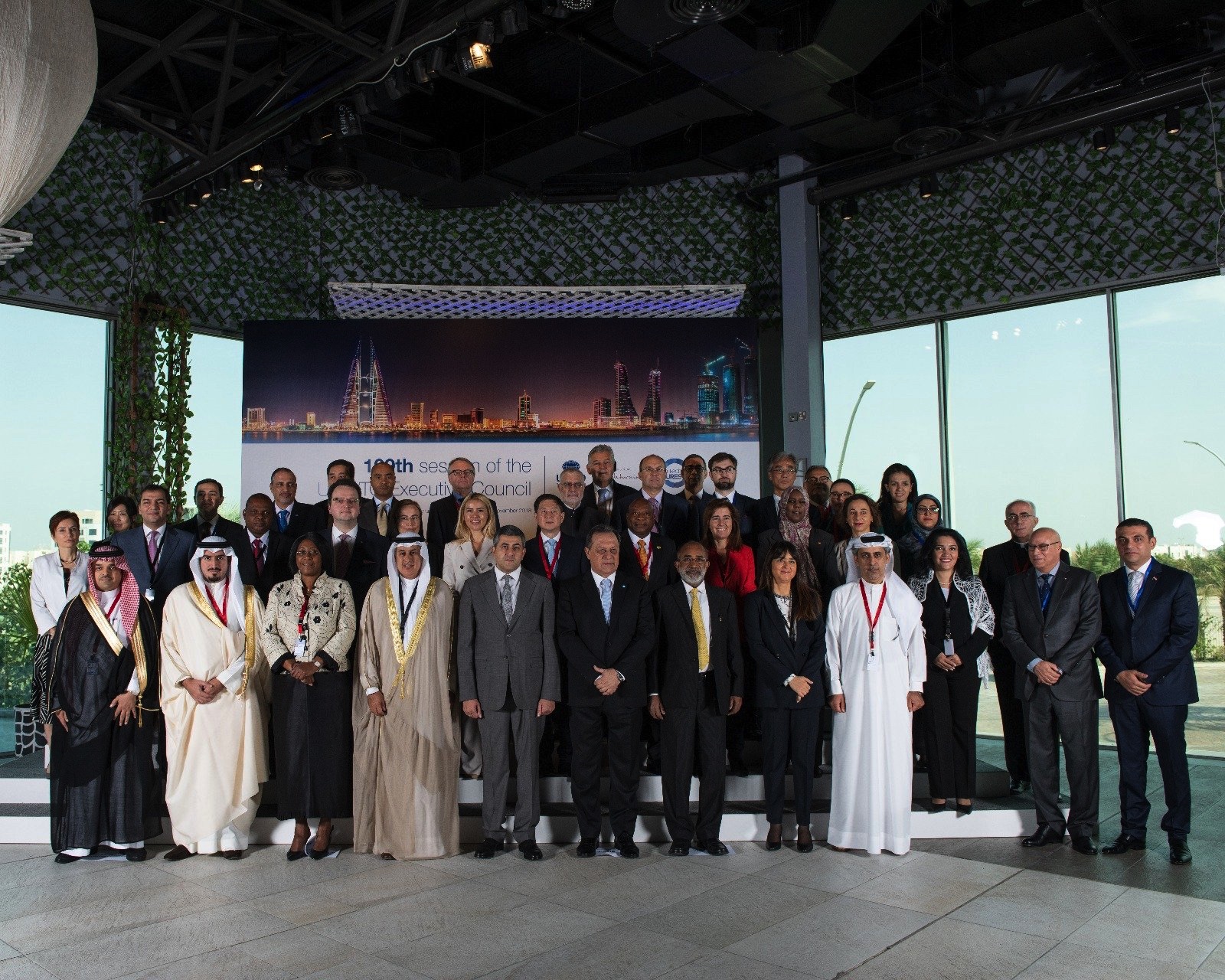
UNWTO Agenda receives strong support at Executive Council
The World Tourism Organization (UNWTO) concluded its 109th Executive Council session in Manama, Bahrain today, with Members showing appreciation both for progress made under the 2018 institutional priorities and for the Organization’s financial stability and restructuring process. Tomorrow UNWTO will also introduce a forum named ‘Tourism Tech Adventure: Big Data Solutions, bringing together the ‘ecosystem’ of tourism innovation and raising the sector’s role in the digital agenda.
A successful 109th session of the UNWTO Executive Council brought with it much appreciation of the Organization’s efforts in 2018. A number of Member States expressed great support for UNWTO’s efforts to prioritize tourism in the 2030 Agenda for Sustainable Development. The executive management team was praised for creating a cleaner structure more equipped to effectively respond to Members’ requests, as well as the clear management priorities and sharp focus placed on UNWTO’s work areas of education and digital transformation.
A mere ten months into the new mandate, UNWTO was able to communicate showing a financial surplus. At this point in the year, the Organization has received higher contributions than in the last three years and the highest percentage of budgetary income since 2014, with expenditure also on target.
UNWTO’s Secretary-General Zurab Pololikashvili gave thanks to Bahrain, the host country for the proceedings. “Being hosted in Bahrain is very relevant. Here you can see how innovation and being a smart destination can be positioned high on the political and economic agenda, and how supporting tourism education and capacity building is a sound investment”, he said.
On the margins of the Council UNWTO held a high-level workshop on data-driven tourism management. The Organization has introduced a new forum, ‘Tourism Tech Adventure: Big Data Solutions’, where panellists debate how open data platforms are revolutionizing tourism, along with how to stimulate venture capital and greater gender equality in tourism and technology.
‘Tourism Tech Adventure: Big Data Solutions’ will also welcome another round of pitches for finalists of the 1st UNWTO Tourism Startup Competition in Collaboration with Globalia, launched in June 2018 to identify companies that can foster the sector’s digital transformation. The finalists’ projects will be presented at the next International Tourism Fair of Madrid (Fitur) in January 2019.
The forum serves as a follow-up to the official World Tourism Day 2018 celebrations on 27 September in Budapest, Hungary, under the theme of ‘Tourism and the Digital Transformation’, and a precursor to the upcoming UNWTO and World Travel Market ministerial summit in London, UK (6 November) on investment in tourism technology. All are part of UNWTO’s ongoing strategy to give tourism its deserved prominence on the digital agenda. Secretary-General Pololikashvili signed cooperation agreements during the Executive Council with the tourism authorities of Argentina and Portugal to strengthen UNWTO’s cooperation agenda on innovation in tourism.
Mr. Pololikashvili announced during the Council that UNWTO governing bodies’ meetings will have a specific overarching thematic focus each year. After 2018’s focus on digital transformation, 2019 will look at employment and education in line with the theme of World Tourism Day 2019: ‘Tourism and Jobs: a better future for all’.
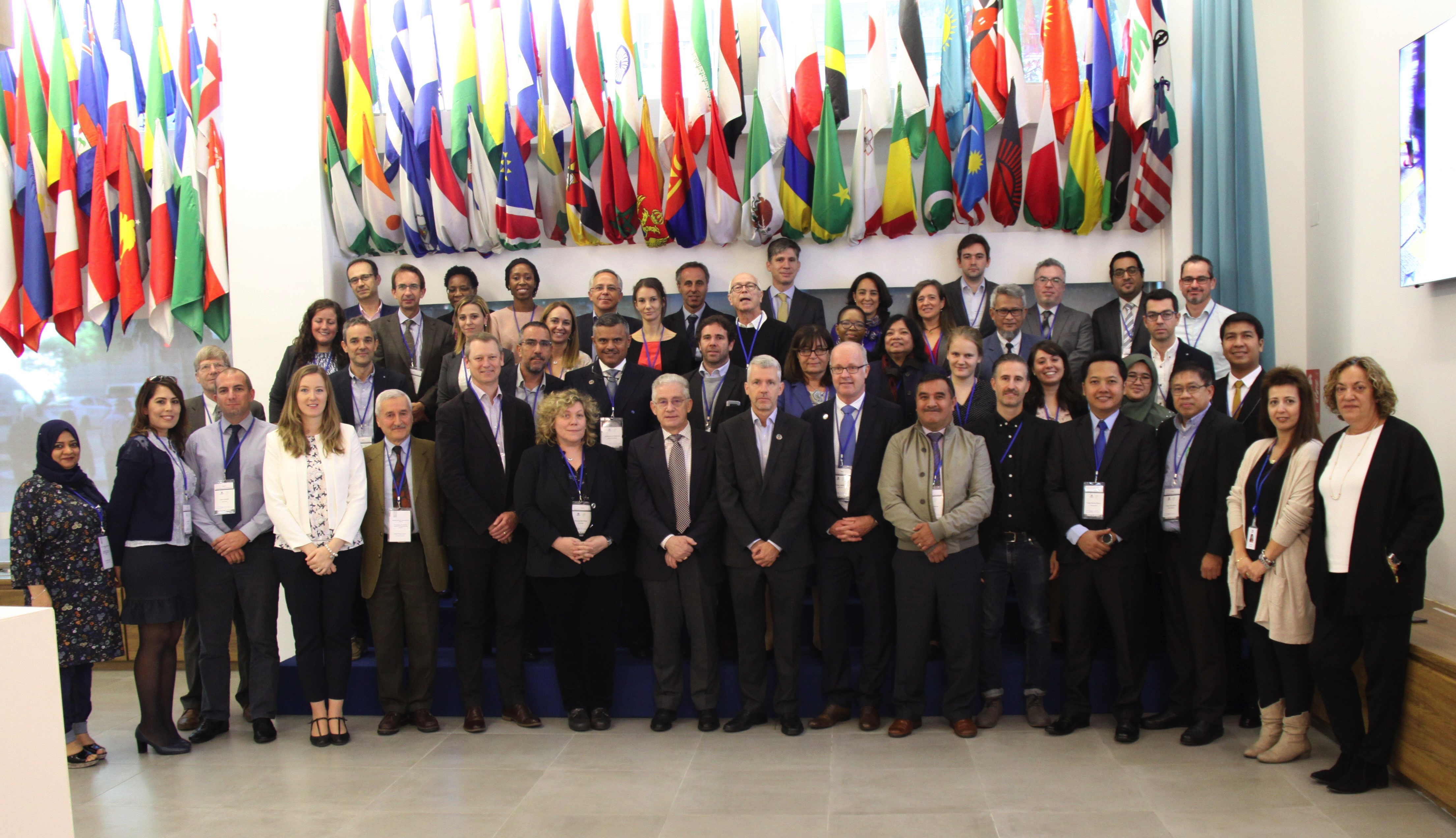
UNWTO: Sustainability set to shape new standard of tourism statistics
The World Tourism Organization’s (UNWTO) initiative Measuring the Sustainability of Tourism (MST) received a boost last week when its working group met in Madrid (24-25 October). After successful pilot studies to produce credible and comparable data, the initiative is on track with its aim of getting the MST framework adopted as the third international standard on tourism statistics.
The group of experts creating a statistical framework for Measuring the Sustainability of Tourism met to establish the MST initiative’s major goals for 2019. The initiative is creating a draft framework for a data standard for tourism’s impact on sustainability and plans to have it adopted as the third international standard on tourism statistics by the UN Statistics Commission (UNSC).
Among the areas of discussion during the group’s meeting on 24-25 October were summarizing the pilot studies done in Germany, Philippines and Saudi Arabia to test MST’s relevance, and which have shown feasibility of the proposed framework in three different national contexts. This means the MST framework is on track to be prepared for submission as an international standard.
For 2019 the MST working group has tasked itself with refining and documenting three statistically-based tourism indicators to monitor the Sustainable Development Goals (SDGs) and their targets. UNWTO is the custodian agency of these three indicators, and coordinates the development of tourism-related indicators with countries and UN agencies. The next step will then be to present this draft framework in UNWTO’s 2019 meetings of its governing bodies.
Background to the MST framework
Statistical frameworks enable countries to produce data that is credible and comparable across countries, time periods and other standards. MST is a UNWTO-led initiative for a statistical framework for tourism, supported by UNSC since March 2017. Its roadmap was set in the 6th International Conference on Tourism Statistics, held in June 2017 in Manila, Philippines.
In order to develop tourism potential, better manage the sector, and support effective evidence-based policy decisions, there is a need to better measure tourism using high-quality official statistics covering economic, social, and environmental sustainability. MST aims to expand existing tourism measurement beyond its primarily economic dimension to also measure social and environmental dimensions.
It aims to link UNSC’s System of Environmental-Economic Accounting with the Tourism Satellite Account framework, which is one of the two existing official frameworks for measuring tourism. The other is the International Recommendations for Tourism Statistics. Both were developed and proposed to UNSC by UNWTO. A similar process is planned for MST.

WTTC: Seamless biometric technology will transform traveler experience
Passengers will be able to move more efficiently, faster and securely through every part of the travel experience after the World Travel & Tourism Council (WTTC), the body which represents the global private sector for Travel & Tourism announced a series of pilot schemes to test the use of biometric technology throughout the end-to-end passenger journey.
In first half of 2019, passengers will be able to trial the application of biometric technology at every stage of the travel process – from the point of booking, check-in, through airports, airline boarding, border management, car hire, hotel, cruise and during the journey.
In a series of pilot schemes being facilitated by WTTC, under its Seamless Traveler Journey initiative, representatives from several industries within the Travel & Tourism sector, such as airlines, airports, hospitality, cruise, car rental, and tour operators, will be able to jointly test different technologies that interconnect and work to improve the experience of the traveler.
The first pilot will see travelers on round-trips between Dallas Fort Worth International Airport or London using biometric technology to conduct all airline security, airport and border processes before accessing car rental and hotel check-in using the same biometric information.
WTTC is working with American Airlines, Dallas Fort Worth International Airport, Hilton, and MSC Cruises on plans for this first step towards the immense task of changing how people will travel which will have profound benefits for the traveler and the future of the industry. All of these corporations and the members of WTTC share a commitment to making the travel process safer and more efficient through the use of biometric technology.
WTTC has also invited the United States Customs and Border Protection and UK Border Agency to collaborate on the first pilot.
Consulting firm Oliver Wyman is supporting WTTC with the overall Seamless Traveler Journey program.
Gloria Guevara, President & CEO, WTTC, said: “In 2019 travelers between Dallas Fort Worth International Airport and London will be able to experience the future of travel. Our vision is that the traveler won’t need to provide the same information or passport multiple times. Instead, their experience will be seamless, faster and more enjoyable throughout their entire journey. Biometrics will work at every touchpoint of the journey to make travelling easier for the passenger while providing border services with greater security.
“99.9% of travelers are considered low risk. By using technology to minimize queues, we can give low-risk travelers more time to enjoy the travel experience. These travelers, by using technology, will be able to spend their time enjoying the experience, shopping at airports or more time at destinations rather than worrying about long queues.
“Travel & Tourism employs one in ten people on the planet today and over the course of the next 20 years we will witness a doubling of the number of travelers and the creation of as many as 100 million jobs around the world. We have a responsibility to prepare for the future by transforming the traveler experience while increasing security by working together and with governments.”
Chris Nassetta, Chairman of WTTC, and President & CEO of Hilton, added, “In our industry, our customers are at the heart of everything we do – we are always looking for new ways to offer them exceptional experiences. In the near future, travelers will begin to see biometric technologies that will enhance many elements of their journey from start to finish. Thanks to the support of our partners around the world, WTTC is helping create seamless experiences for travelers, encouraging the sustainable growth of travel and tourism.”
Sean Donohue, CEO of Dallas Fort Worth International Airport, said “As we look ahead to transforming the customer experience through technology and personal touchpoints, we’re pleased that DFW is part of this industry-leading effort. International airports are uniquely positioned in the customer journey, providing a key connection between air and ground transportation, hotels, and government agencies. We’re confident the WTTC pilot program will lead to an even better customer experience and more efficiencies for businesses and agencies across the travel and tourism industry.”

The 12th UNWTO/PATA forum looks into the future of tourism
The World Tourism Organization (UNWTO), the Pacific Asia Travel Association (PATA) and the People’s Government of Guilin, China held the 12th UNWTO/PATA Forum on Tourism Trends and Outlook on 25-27 October 2018. This year’s edition – ‘The Future of Tourism: Road to 2030´, aligns with the 2030 Agenda for Sustainable Development and the Sustainable Development Goals (SDGs).
“Digital advances provide opportunities to tourism in order to enhance inclusiveness, community empowerment and efficient resource management to achieve the SDGs. Yet to do so, we need to better understand where tourism is heading so we can adopt the adequate policies and business strategies.” said UNWTO Executive Director Shanzhong Zhu at the event.
International tourist arrivals in Asia and the Pacific grew 6% in 2017 to reach a total of 323 million. Rapid economic growth in emerging economy markets, rising air connectivity, more affordable travel and enhanced visa facilitation continue to fuel tourism from within and outside the region. Asian destinations earned USD 390 billion in international tourism receipts in 2017, 29% of the global figure, a share that has steadily increased from 17% in 2000. China, the world´s top spender in international tourism and fourth largest destination, has been one of the main drivers behind this growth.
Dr. Ian Yeoman, travel and tourism futurologist, delivered the keynote speech on the future of tourism, highlighting the importance of societal behaviours towards a sustainable future and the distribution of wealth generated by tourism, as main drivers of change.
Furthermore, topics covered at the Forum included how digital advances and data can be used to support sustainable tourism for development. Presentations were made by Google, TripAdvisor, Vynn Capital, STR, the European Travel Commission as well as research and policymakers from across different countries in Asia and the Pacific. The Forum concluded by emphasising the need for transformation and seize the opportunities brought by innovation and technology to move sustainability to the next level.
The 12th UNWTO/PATA Forum on Tourism Trends and Outlook drew more than 220 experts from 22 countries, among which representatives from National Tourism Administrations, National Tourism Organizations, tourism businesses and academics. With the longstanding collaboration of the Hong-Kong Polytechnic University, the Forum has become over the last 12 years a reference platform on global and regional tourism trends.
